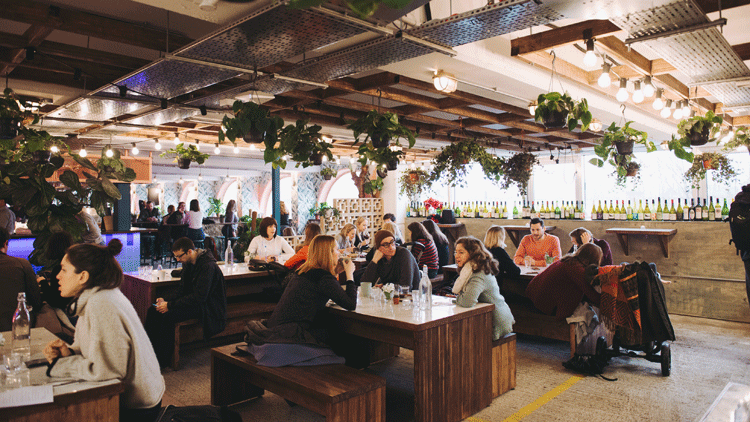The past three years have reshaped the role and expectations of modern property management systems in ways few could have predicted. When the 2022 IDC MarketScape PMS report was released, the industry was still navigating cloud migration, shifting guest expectations, and the lingering effects of the pandemic. Technology conversations centred on modernisation: replacing legacy systems, improving interfaces, enabling mobile access, and ensuring integrations worked reliably.
The 2025 IDC PMS MarketScape presents a very different context. Cloud is now assumed rather than debated, and automation is no longer a future ambition but an operational reality. Artificial intelligence has moved from the margins to the centre of product strategy. As a result, modern property management systems have shifted from systems of record to systems of intelligence. The PMS has reclaimed its role as the core platform in the hotel technology ecosystem, not through nostalgia but through necessity.
This transition marks a broader transformation within hospitality. Hotels are no longer looking only for operational efficiency: they are looking for smarter operations, deeper guest understanding, and greater adaptability. Understanding how PMS expectations have changed between 2022 and 2025, therefore, becomes essential for any hotel shaping its technology roadmap today.
Takeaways
Modern property management systems have evolved into intelligent platforms that unify data, orchestrate automation, and support diversified hotel business models.
Cloud adoption is no longer a point of differentiation; the real value now lies in interoperability, scalability, and resilience.
AI-driven workflows and predictive insights are reshaping guest interaction and operational decision-making across hotel departments.
Support quality and implementation partnership remain critical factors that influence long-term PMS success for any hotel or group.
Hotels benefit from viewing PMS selection as a strategic transformation rather than a technology replacement, with change management playing a central role.
From Cloud Migration to Intelligence
In 2022, the PMS discussion was anchored in cloud migration. Many hotel groups were still transitioning from on-premise infrastructure, often driven by vendor end-of-life announcements or growing operational challenges. Cloud was seen as both the differentiator and the destination.
The 2025 landscape signals a complete shift. Cloud capability has become a baseline expectation. What differentiates platforms today is how effectively they transform operational data into actionable insight. Hotels now judge PMS solutions by how well they enable teams to make better decisions, streamline processes, and anticipate rather than react to guest needs.
This shift reflects an industry that has matured technologically. Hotels no longer ask whether a PMS should be cloud-based. Instead, they ask how the system can support automation, enable intelligence, and empower teams to perform at a higher level.
The Hospitality Platform Takes Shape
One of the most significant changes between 2022 and 2025 is the reframing of PMS from a property management tool to a broader hospitality management platform. The industry’s operating models have diversified, with extended-stay brands, serviced apartments, flexible spaces, and hybrid hospitality concepts growing rapidly. As these models evolve, expectations for the PMS evolve with them.
Where the 2022 discourse focused on the front office, back office, and core operational modules, the 2025 conversation is far more expansive. Hotels now look for systems capable of supporting varied inventory types, enabling multi-use spaces, managing long-stay operations, and accommodating flexible booking structures. Instead of being an operational endpoint, the PMS is increasingly seen as the foundation for the hotel’s broader digital ecosystem.
This shift highlights a simple but important truth: the PMS no longer needs only to manage rooms. It needs to support the full diversity of modern hospitality.
Interoperability and Composability Become Strategic
This focus on composable architecture aligns with a broader industry trend: the shift from monolithic systems to flexible, API-driven platforms. Integration was a prominent theme in 2022, yet it was often described as a technical challenge rather than a strategic priority. The focus was usually on whether a PMS could connect to third-party tools rather than on how easily those connections could be deployed or maintained.
By 2025, interoperability defines system value. Hotels expect seamless connectivity, faster implementation timelines, and lower integration overhead. Composable architecture, an unfamiliar concept in hospitality only a few years ago, has become a defining expectation. Hotels want modular systems that adapt to their operational models without forcing them into predefined workflows.
This evolution has reshaped the industry’s approach to technology partnerships. APIs must be stable, accessible, and designed for rapid use. Integrations must be easier to implement. Systems need to evolve without disrupting existing operations. A PMS that limits these possibilities risks falling behind, while a PMS that enables them becomes integral to long-term digital strategy.


The Operationalisation of AI and Automation
Artificial intelligence appears throughout the 2025 landscape, signalling how quickly it has become an operational expectation. While AI was referenced in the 2022 discussions, it was mainly as an emerging trend. Today, it is firmly embedded within the PMS narrative.
Hotels increasingly rely on automated workflows to reduce manual tasks, improve accuracy, and accelerate decision-making. Predictive insights support room assignment, maintenance planning, and demand forecasting. Intelligent automation helps teams respond more quickly to guest needs and focus attention where it matters most. Digital assistants now play a growing role in onboarding, support, and task flow management.
Although technology continues to advance, not every challenge can be solved through automation alone. Many hotels still struggle with training, process alignment, and organisational readiness. Technology can streamline tasks, but it cannot replace the leadership required to implement change effectively. The success of automation, therefore, depends as much on internal discipline as on system capability.
Unified Data and the Rise of the Intelligent Guest Profile
Guest data has long been fragmented across departments and systems, limiting a hotel’s ability to understand or anticipate guest behaviour. The 2022 report acknowledged these challenges but had not yet positioned the PMS as the central hub for guest identity.
The 2025 landscape changes that. Modern platforms now emphasise unified guest profiles that move beyond basic stay history. These profiles consolidate preferences, behaviour, interactions, and property-wide touchpoints. This unified perspective allows hotels to personalise experiences more consistently, streamline service delivery, and strengthen loyalty.
Unifying data also improves communication between systems. Revenue management, CRM, payments, distribution, and guest engagement tools all perform more effectively when drawing from a consistent source of truth. Modern property management systems, therefore, play a critical role in establishing data coherence across the entire hotel ecosystem.


Support, Training and the Human Dimension
Technology is only as effective as the people who use it. While platforms have advanced significantly since 2022, many hotels still encounter challenges not because of system limitations but because of training gaps, process misalignment, or insufficient change management.
Support continues to be a decisive factor in successful PMS adoption. Hotels need timely, knowledgeable assistance during both implementation and daily operation. Training must be ongoing, not a one-off. Vendors can educate teams on system functionality, but hotels must integrate that knowledge within their own operational frameworks. The most advanced technology delivers limited value without consistent reinforcement and clear internal ownership.
As expectations for modern property management systems increase, so too does the importance of cultivating a culture that embraces digital operations. Systems become smarter, but human alignment remains essential.
The PMS Returns to the Centre of the Ecosystem
For several years, the PMS appeared to be losing its central position in the hotel technology stack. Other platforms, CRM, CDP, channel management and revenue systems, vied for strategic importance. Yet as hotels adopt more advanced digital capabilities, the PMS naturally recenters itself as the system that coordinates operational data, connects every department, and enables the actions that define the guest experience.
This renewed centrality is not the result of nostalgia. It is the result of function. The PMS remains the only system that touches every operational process, from check-in to check-out and from staff coordination to financial reconciliation. As automation, AI and data intelligence take root, the PMS becomes the logical platform from which these capabilities extend.
Modern property management systems are therefore not simply modernised versions of past tools. They represent a new generation of operational intelligence, offering hotels the ability to operate more cohesively, adapt more quickly, and understand guests more fully.
Conclusion
The evolution from the 2022 to the 2025 IDC PMS landscape reflects a decisive shift in how hotels think about technology. Modern property management systems have reclaimed their position at the centre of operations, not because the industry has returned to old ideas but because the demands of modern hospitality require a unified, intelligent platform.
Cloud capability has become a baseline. Automation and AI are now expectations. Data unification is essential, not optional. Interoperability is strategic. Yet technology alone does not guarantee success. Hotels must pair these capabilities with strong leadership, clear processes and a commitment to continuous training.
The PMS is once again the system that brings these elements together. It is the operational core, the data hub, and increasingly the intelligence layer that drives the future of hospitality.











